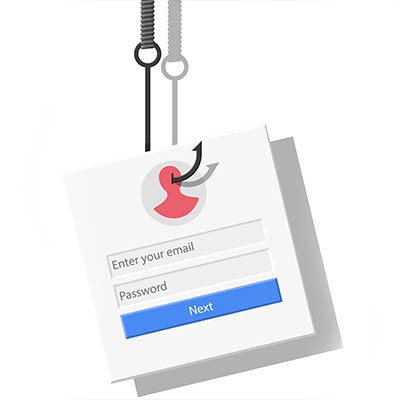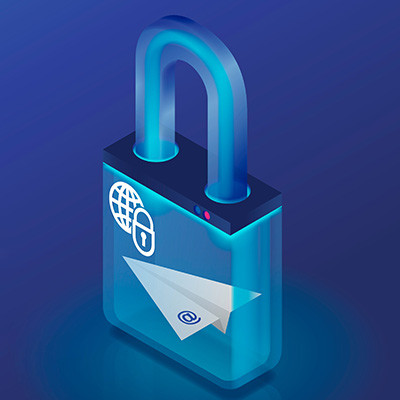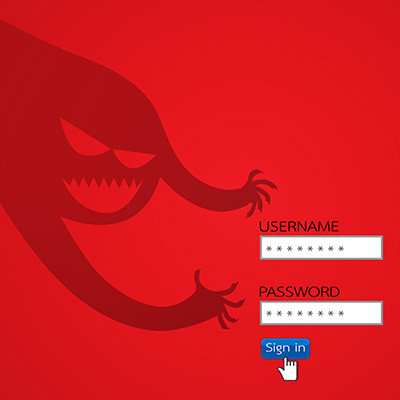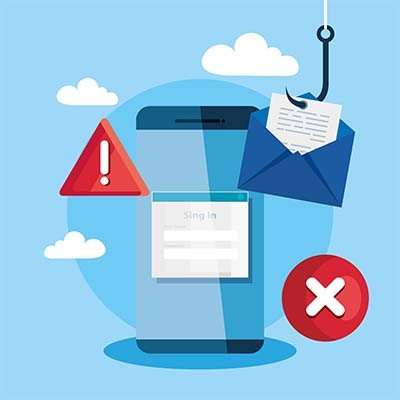Master Solutions Blog
Scams are often so convincing that it’s difficult for even experienced individuals to detect them, but why is this the case? It all boils down to human psychology. Modern security training can help you identify these telltale signs, but it doesn’t really explain the why of things. That’s what we’re out to explore today.
If you are like most people, you are probably juggling a million things at work, and when an email pops up from your boss, your instinct is to take it seriously. Hackers know this, and they're getting good at creating fake emails that look exactly like they're from your manager to get you to make a mistake and give them what they need to access your digital accounts and the data that lies therein.
While the goal of cybersecurity is always to prevent threats from taking advantage of your infrastructure, this is becoming more and more challenging as time wears on and threats evolve to changes in cybersecurity discourse. A recent podcast episode from Illumio, “Trust & Resilience: The New Frontlines of Cybersecurity,” explores how trust has become a vulnerability that attackers exploit in new and creative ways. How can cybersecurity as an industry pivot in response to this trend?
Imagine one of your employees gets a phishing email. Would they recognize it and report it, or would they fall for it? With phishing training, you don’t have to guess—you can make sure your team knows exactly how to handle these situations.
If you are a consistent reader of this blog, it will not surprise you that we think of phishing as one of the most significant threats that impact businesses today, regardless of their size or industry. Understanding this threat and implementing effective prevention measures is vital for safeguarding your organization. Let's go into how you can minimize the impact of phishing schemes and protect your business.
Phishing scams are one of the most common (and insidious) problems you and your team may encounter. While it may seem simple to avoid a phishing attack, the truth is that many of these schemes are highly sophisticated and are constantly evolving to become more so.
The seamless functionality of email often leads individuals to take it for granted. Whether accessing Outlook or logging into Gmail, the delivery of emails seems effortless. However, the intricate and expansive network of systems essential for email operations often goes unnoticed, and understandably so, given its complexity.
Phishing attacks frequently target sensitive data such as login credentials, financial records, and intellectual property. When these attacks succeed, they can lead to data breaches, resulting in significant financial losses, damage to the organization's reputation, and legal consequences.
Security is a major pain point for businesses of all industries and sizes, and the numbers reflect this. Here are some of the most notable statistics we could find that prove just how important security is to not just your business, but all businesses.
Since 2019, Google has had a feature built into their Chrome browser called Enhanced Safe Browsing. Intended to help prevent phishing attacks, this feature effectively steps in to warn users about links that it deems suspicious. More recently, this feature was added directly to Gmail. Let’s talk about how to enable it… and why you might actually want to think twice about doing so.
Passwords are what separate you from someone else’s private information, their money, their subscriptions, their personal data, their business, and even their livelihood. If you were able to easily crack a password, you’d have access to the wealth and identity of another person. In this blog, we’re going to show you just how to do that.
Amazon Prime subscribers were recently sent a communication from the online marketplace detailing popular scams and what can be done to protect against them. While we have our own set of best practices to share, we thought we would take a closer look at Amazon’s advice to see how it squares up against our own.
If you are an Amazon Prime subscriber, chances are you received an email from the online marketplace warning users of scams that take advantage of offerings and brand recognition. We thought it would be interesting to look at the advice shared by this message to see if it matches up with our own recommended best practices.
Phishing messages are one of the scarier threats out there, especially when you consider that they force you to be on edge about most messages you receive, regardless of how sound they might appear to be. Thankfully, there are various telltale signs that you can look for when analyzing the messages you receive on a daily basis that can clue you in on some of the more suspicious phishing messages.
Have you ever heard of what’s called a phishing attack? These are scams that are designed to trick users into handing over sensitive credentials by appearing to be someone else. However, some types of phishing scams are much more dangerous than others, with some hackers feeling ambitious enough to pull in “a big catch.” These types of attacks are called “whaling,” or the imitation of executive authority in order to get what they desire.


















